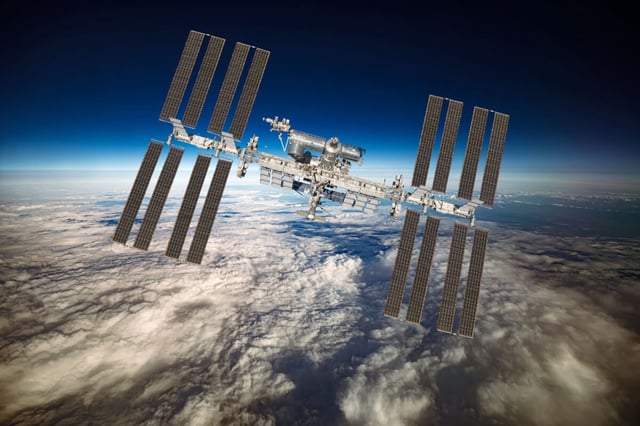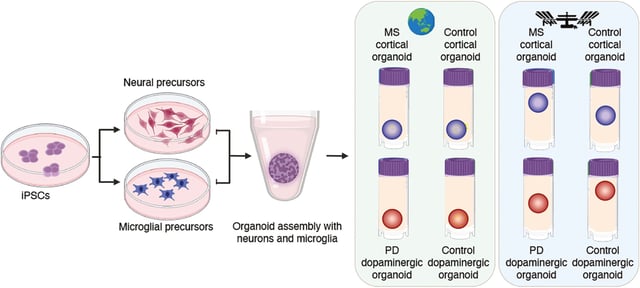Overview
- Researchers sent human brain cell organoids to the International Space Station (ISS) to study the effects of microgravity on brain development.
- The space-grown organoids matured faster than their Earth-grown counterparts, showing higher levels of genes associated with cell specialization and reduced proliferation.
- Despite the accelerated development, the organoids remained healthy, with less inflammation and lower levels of stress-related gene expression compared to Earth-grown samples.
- The study suggests that microgravity may mimic brain-like conditions more closely than traditional lab environments, providing a unique model for neuroscience research.
- The findings have implications for astronaut health during long-term space missions and could inform research into neurodegenerative diseases like Parkinson’s and Alzheimer’s.


